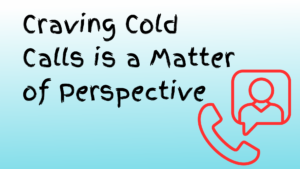
Blog
Notes:
Have you ever considered using content to build your personal brand? Content marketing can be a very powerful tool to use in your role as a sales engineer. In this episode, Trevor Spires shares his journey as an SE, video content creator, and how he found me through this podcast. You’ll learn how you can use content marketing to build trust with customers and potential hiring managers, as well as how the sales engineering world is changing and what you can do about it.
Trevor Spires is a Senior Solutions Architect at AWS with over 10 years of experience in consulting and pre-sales architecture for web software and IT infrastructure. His technical expertise includes Network Engineering, Security/Compliance, and Infrastructure/Cloud Computing, as well as consultative and customer-facing skills. He is also passionate about video production, content marketing, music, and excessive coffee consumption, and has a YouTube channel under his name.
Key Takeaways:
- Who is Trevor Spires and what made him fall in love with presales?
- The difference between presales, sales engineer, and solution architect – is there?
- How Trevor found his role as Solution Architect at the company he’s working in now
- Trevor addresses rumors about people working in Amazon having at least one crying session while working there
- What Trevor was doing before he became a Solution Architect for seven months and an SE for three years
- How the We the Sales Engineers podcast helped Trevor convince an SE manager that he would be perfect for the role of sales engineer
- Did he know he was going to like the role or was it a risk?
- Ramzi’s fear when he was just starting out as an SE and how he easily overcame that fear
- Skills and lessons Trevor learned from his time as a professional services engineer that he still uses in his role as a sales engineer today
- How easy or difficult was it to transition from being an SE who specialized in one product line to a Solution Architect in AWS that had to become more of a generalist?
- Why it pays off to be a big believer in your team and management but also recognizing the vision of the company
- How to influence your account manager when trying to shift into selling a subscription-based item versus the lower priced repetitive SKUs
- Your job as as a sales engineer and how it differs from a salesperson
- How and why Trevor Spires created his own YouTube channel
- The perks of having a YouTube channel where hiring managers or customers will recognize you from a YouTube video and that instantly builds trust
- How social media and content marketing helps Trevor network internally
- Did Trevor fear not being supported by his company for building his personal brand online?
- Trevor advocates creating a YouTube channel even if there already are information around around the world about a specific thing
- How it helps him develop new skills and help other people
- Trevor shares his experiences about his YouTube journey and gives some tips for anyone who wants to start creating video content
- Why Ramzi thinks work-life balance is a myth
Quotes:
“Sales engineering is a really unique role as a technologist where you can be an expert on technology and people but there is a performative aspect too, like running calls and creating demos and things like that. So it kind of scratches that creative itch for me.” – Trevor Spires
“At the end of the day, every technology decision an organization makes is driven by a human decision first. And I think there’s something special about getting to be a part of the human process to make a technology decision that must come before the engineering decisions to design a solution.” – Trevor Spires
I’m not going to make a video about that paints my employer in a negative light. I think as long as you avoid that, you’re fine. –
I find if you get started, if you don’t care about the results specifically, just care about the habit. The results may or may not come but at least you learned something while doing it. – Trevor Spires
“I look at my job not just as selling product, my job is to do what’s right for my customers. And so there comes a point where you have to put your foot down, your own beliefs on what’s right for your customer. And luckily, at that organization, I had the autonomy as an SE to have that voice and make those decisions for myself. Because it’s not always right for a customer to buy a big, perpetual license, sometimes it’s better for them to do a subscription model.” – Trevor Spires
“How do I communicate these ideas clearly, in a compelling way? To me, that’s the skill and the part that I didn’t have a lot of experience with when I started… I overcame it by consulting with peers, getting mentorship, and then also, just doing it and putting yourself out there and being willing to try new things.” – Trevor Spires
You have to be aware of but not obsess over quotas, but yeah, you’re right. That’s how performance is measured. The way I the way I look at things is, the second I need to compromise my own beliefs to hit quota is when I have to start looking for a new job. I lose sleep at night feeling like I’m incentivized to do something that may not be right.” – Trevor Spires
“The number one most important skill I learned as a professional services engineer is the ability to confidently engage in a project that you’re not an expert in today.” – Trevor Spires
“I’m really passionate about helping individual contributors and like other Engineers like that. That’s really what gets me excited. So a lot of people reach out with questions about technology. But it’s actually more common these days for people to ask me about, like certifications and career planning.” – Trevor Spires
“Content marketing is like you create content, you attract eyeballs to that content, and then you use that to sell something eventually, consulting services or whatever. I view YouTube, LinkedIn and social media as content marketing for myself, for my own personal brand.” – Trevor Spires
“If anybody wants to experiment with creating video content, like getting a setup that’s easy for you, you need to just reduce friction between having an idea and now it’s a five minute video. Because if it takes you two days to make a five minute video, you’re going to make a lot fewer than if you make it really easy for yourself.” – Trevor Spires
“I find if you get started, if you don’t care about the results specifically, just care about the habit. The results may or may not come but at least you learned something while doing it.” – Trevor Spires



